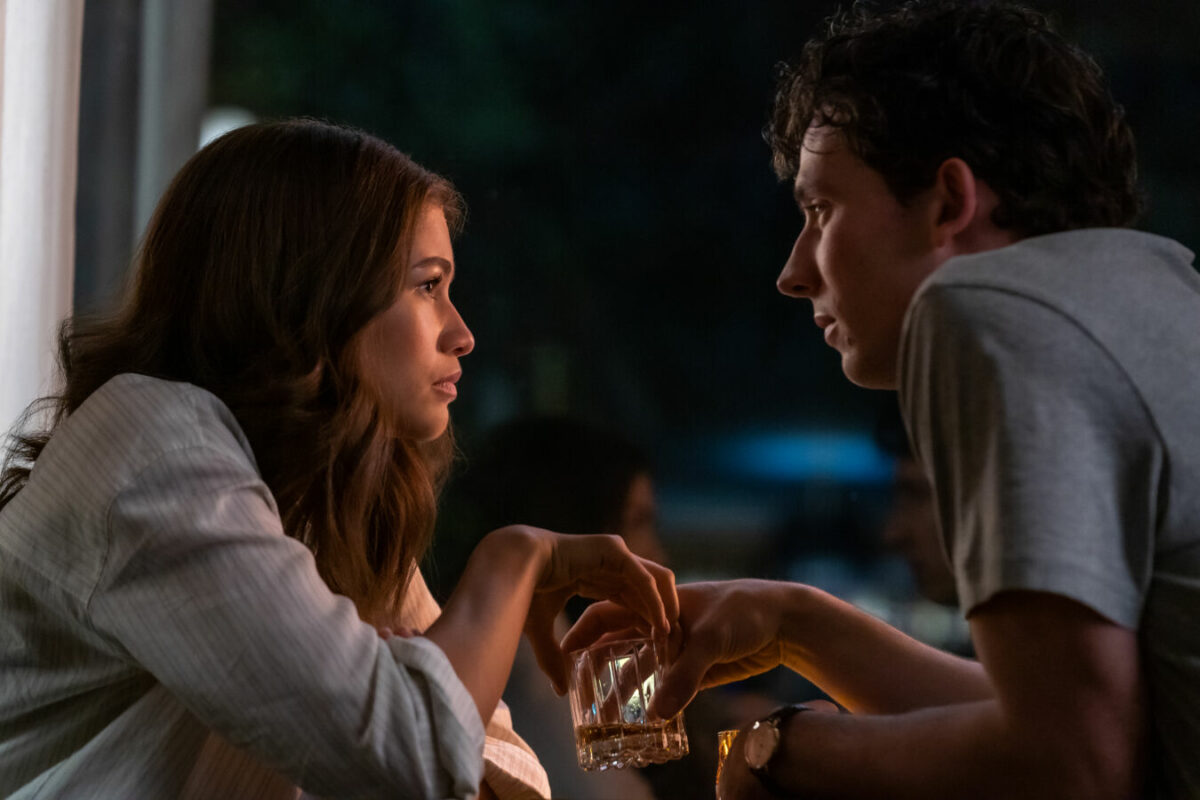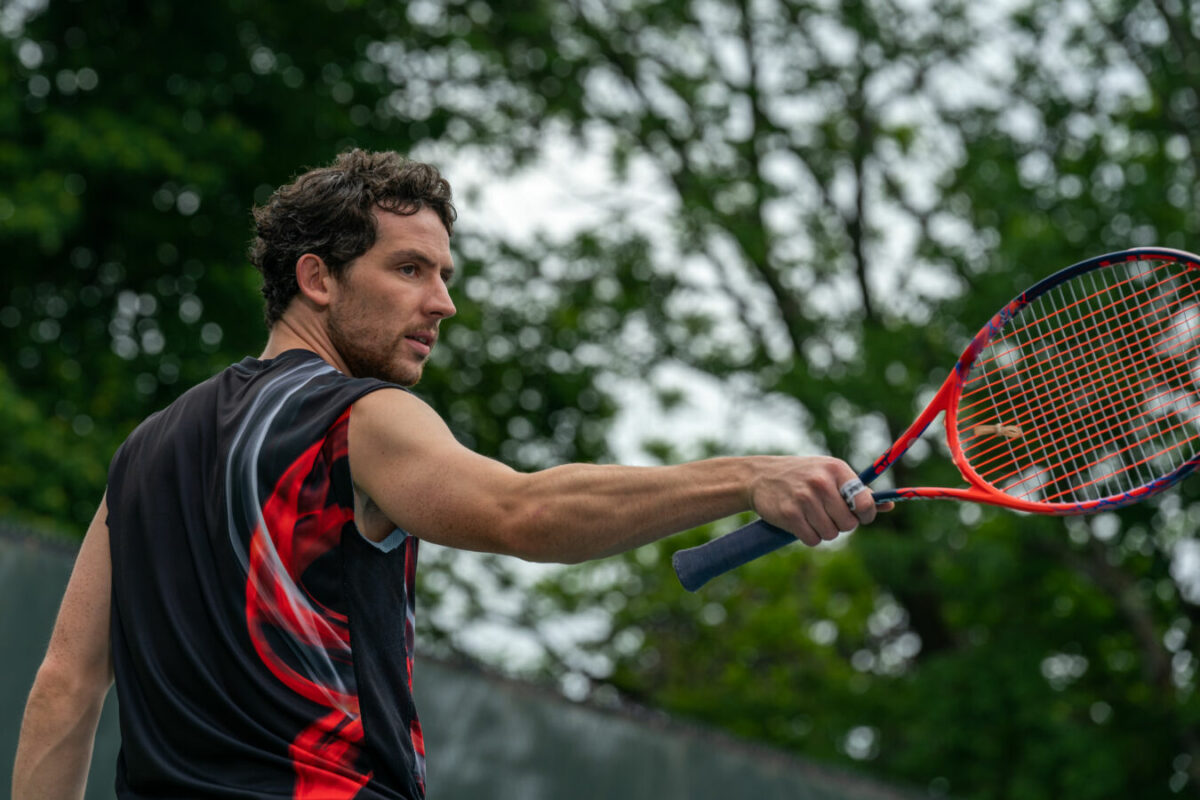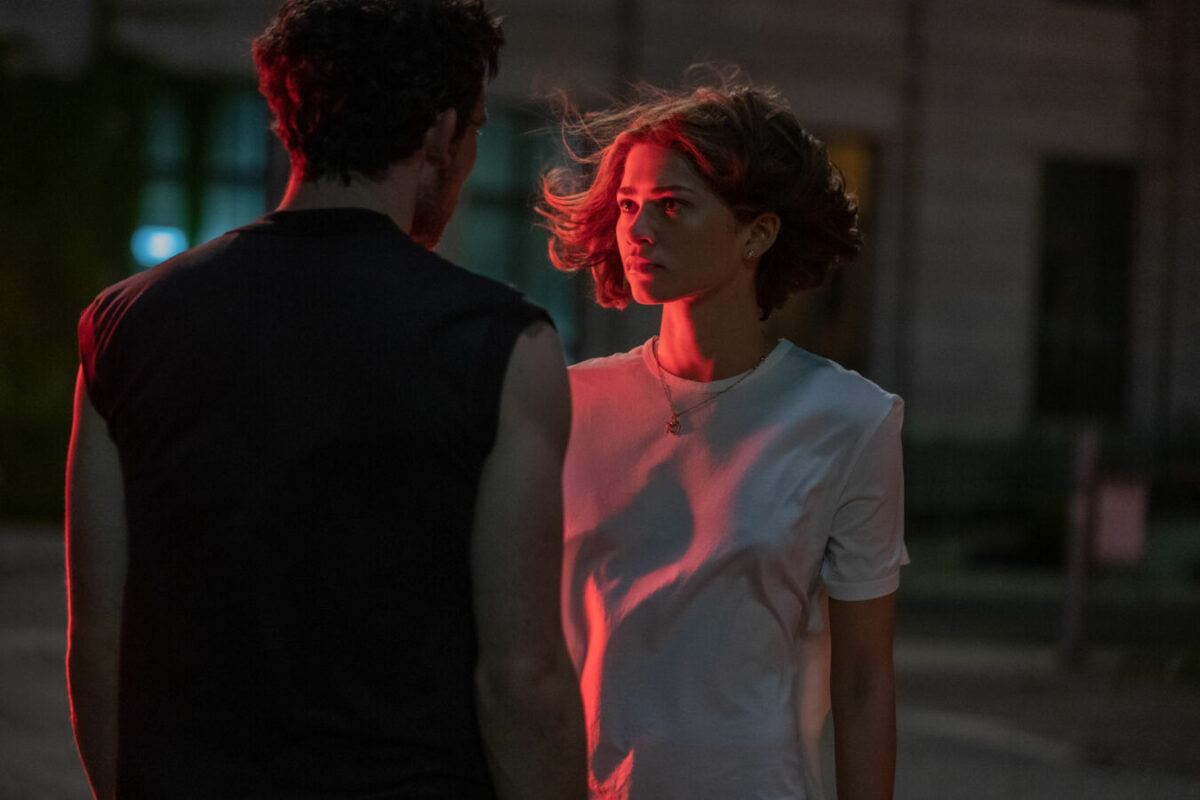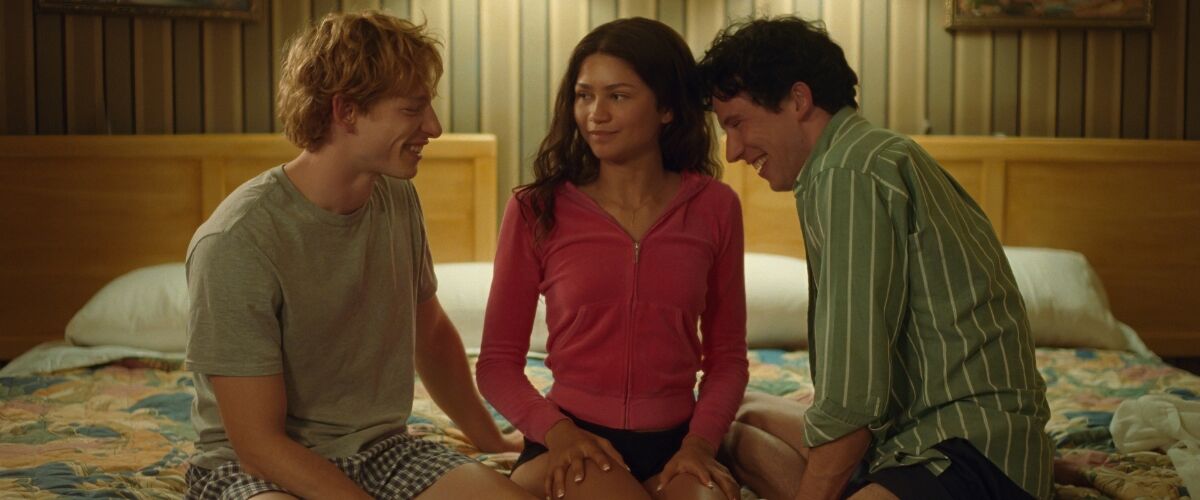Romance, in the mind of filmmaker Luca Guadagnino, is rarely simple. From the languid sensuality of the coming-of-age drama Call Me By Your Name (2017) to the passionate affair in the Tilda Swinton-led I Am Love (2009), and even the raw, consuming passions of young cannibals in Bones and All (2022), his stories unflinchingly explore the complex and often messy terrain of primal human desire. Guadagnino’s characters yearn, they ache, and they make choices both destructive and sublime, leaving a lasting imprint on our hearts.
Now, he brings this signature intensity to the world of professional tennis in his latest venture Challengers, an erotic sports drama where the stakes are just as high off the court as they are on.

Out on the sweat-drenched courts, relentless competition sets the stage for a different kind of battle – one of the heart. Zendaya, fresh off her acclaimed performances in Euphoria (2019-present) and Dune: Part Two (2024), is Tashi Duncan, a fiercely talented tennis prodigy turned coach after a career-defining accident, and who finds herself trapped within a love triangle simmering just beneath the surface of a prestigious tournament.
Tashi is torn between two best friends – Art Donaldson, played by Mike Faist of Steven Spielberg’s West Side Story (2021) fame, a once-struggling player she elevated to worldwide fame and made her husband; and Patrick Zweig, brought to life by The Crown’s (2016-2023) Josh O’Connor, her former flame and a fallen star clawing his way to the top. The film captures their early years as a trio with a playful energy reminiscent of a coming-of-age story – these are young people intoxicated by ambition, hungry for both victory and a deeper, unspoken connection.

This sense of yearning is echoed in director Guadagnino’s camerawork. His camera lingers on moments of unspoken tension, finding poetry in the sweat of competition and the shared rhythm of players in sync. Challengers shifts fluidly through time, flashing back to pivotal matches that shaped the trio’s present-day dynamic. While this structure serves the intricate story well, the frequent time jumps can sometimes feel jarring and disrupt the narrative flow.
Despite this stylistic hiccup, the performances shine throughout. Faist brings tenderness and vulnerability to Art, while O’Connor imbues Patrick with a mischievous charm and sharp wit. Just like how Call Me By Your Name catapulted Timothée Chalamet to stardom, Challengers could be the film that cements Faist and O’Connor as the leading men of their generation, as the film establishes their athletic prowess and nuanced, soul-baring performances.

However, it’s Zendaya who truly commands the screen with her undeniable charisma, especially in the portrayal of the younger Tashi, a vibrant mix of ambition and calculated risk-taking. Her presence elevates every scene, even when her character is more of an observer than an active participant. In her nuanced portrayal, Tashi is not just a prize to be won by the two men, but a force in her own right, influencing the lives of the men around her with both deliberate strategy and unspoken allure, crackling with an electricity that lingers long after the final match point.
That being said, there may be a potential disconnect for audiences because while the film’s marketing heavily features Zendaya, her character isn’t the central focus of the story, leaving audiences craving more of her presence in the film. Viewers anticipating a Zendaya-centric narrative might be taken aback by the emphasis on best friends Art and Patrick’s tangled dynamic bordering on a potential homoerotic relationship, with Zendaya’s Tashi serving more as a catalyst for their conflict than an active participant in the unfolding drama.

Guadagnino explores this dynamic with an unabashedly bold style, infusing the film with a palpable sense of intimacy and even audaciousness. His fascination with the complexities of human connection is on full display, particularly in his portrayal of the bond between Art and Patrick that goes beyond mere rivalry. Guadagnino doesn’t shy away from provocative themes, fostering a sense of charged energy that pushes the boundaries of what one might expect from a traditional sports drama.
This boldness extends to the film’s visual language and soundtrack, leaning into a techno score reminiscent of the 1980s composed by Trent Reznor and Atticus Ross. While the film isn’t set in that decade, it conjures its spirit in a quirky and unapologetic manner, adding momentum to the tennis scenes, amplifying the tension and turning even trivial activities into moments of high drama. Some sports movie tropes, such as the slo-mo walk to the court and spectators turning their heads in unison, are used, though they might come off as clichéd.

At the same time, Guadagnino and his team aren’t afraid to get playful, particularly when it comes to the dynamic portrayal of tennis matches. The film embraces experimentation with bold perspective shifts, sometimes even taking the viewpoint of the speeding tennis ball itself. These choices are both whimsical and disorienting, and initially, they add a layer of intensity, transforming the court into a visual battleground.
But as the film progresses, especially in the final act, Guadagnino’s love of experimentation takes a turn for the excessive, becoming a double-edged sword. The relentless slow-motion shots – enough to make even Zack Snyder blush – and the constant switching between player perspectives and the whizzing ball disrupts the flow of the match. Similarly, the propulsive score, initially exhilarating, starts to feel overbearing in some sequences. Sadly, the overindulgence in the last act overshadows the film’s earlier successes.

Ultimately, the film’s conclusion, with its increasingly convoluted twists, might leave audiences feeling a touch underwhelmed and perhaps even frustrated. This detracts from the film’s earlier triumphs, and we’re left wishing Zendaya had a script better suited to showcase her undeniable talent fully.
While Challengers may not be destined for cinematic greatness, it’s worth watching, particularly for Zendaya’s standout performance. It may not be a guaranteed crowd-pleaser, but it offers a compelling exploration of messy relationships, making it a solid choice for a matinee or streaming option at home when seeking something a little different. Just be prepared for the possibility that Guadagnino’s directorial flourishes might become a bit much in the final stretch, potentially hindering a full immersion in the drama unfolding on the court.
GEEK REVIEW SCORE
Summary
Luca Guadagnino’s Challengers wraps horny, homoerotic relationship drama in a tennis-themed package. His bold directorial style and experimental techniques add a unique flavour to the sports drama genre, but overindulgence in stylistic flourishes and a convoluted final act ultimately detract from the film’s earlier potential.
Overall
7.1/10-
Story - 7/10
7/10
-
Direction - 7/10
7/10
-
Characterisation - 8/10
8/10
-
Geek Satisfaction - 6.5/10
6.5/10














